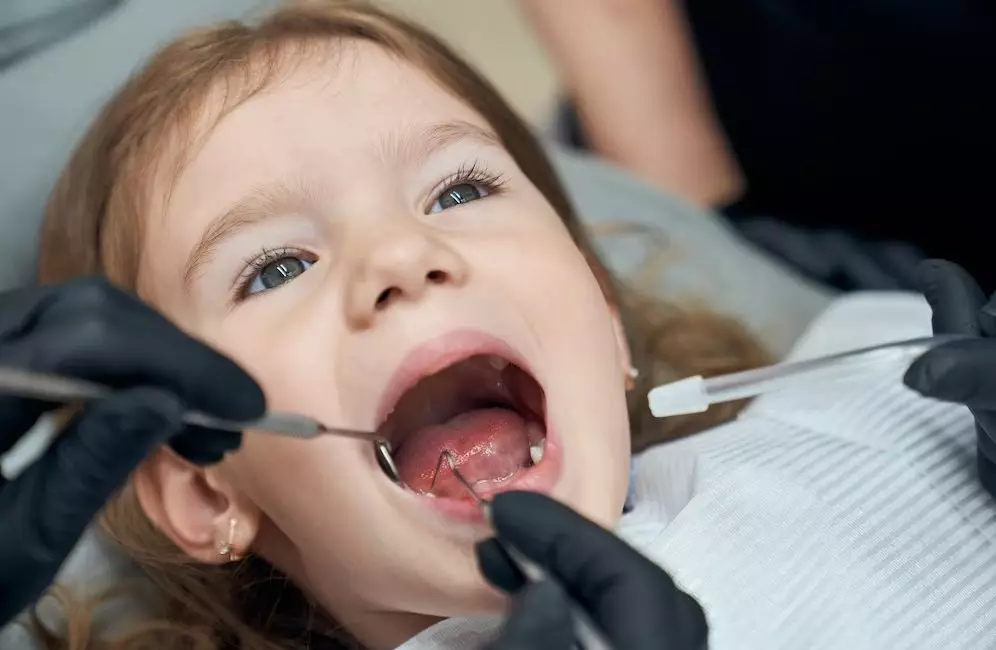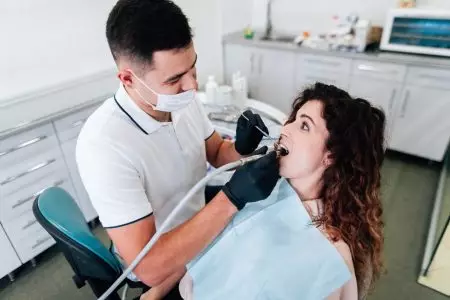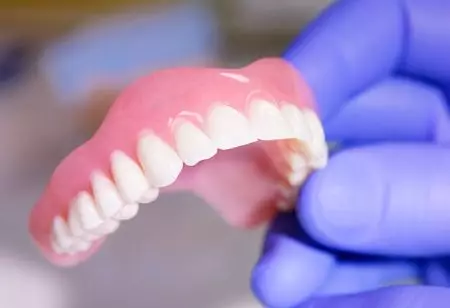Baby teeth, although temporary, play an important role in children’s oral development and future orthodontic situation. They help children to chew food properly and develop speech. Unfortunately, baby teeth are considered temporary, so problems with them are overlooked by parents. Let’s take a look at the importance and methods of dental care, potential problems that can arise if ignored, and tips for maintaining healthy milk teeth in children. Taking care of baby teeth is an investment in the future health of your child’s smile.
Influence of baby teeth on the health of the child
Baby teeth, although temporary, play an important role in your baby’s overall health and development. Some people may think that baby teeth are not important because they will be replaced by permanent teeth in the future. However, this attitude can lead to undesirable health consequences for children. The impact of baby teeth on a child’s health extends far beyond their original function of chewing food. Baby teeth are an important stage for the formation of permanent teeth. If they are cared for properly, the permanent teeth will take their proper place in the mouth. If milk teeth are not treated when necessary, they can lead to the following problems:
- Digestive disorders. Improper chewing due to problems with baby teeth can lead to inadequate food processing and digestive disorders in your child.
- Speech problems. Baby teeth influence the formation of correct pronunciation. If baby teeth are missing or misaligned, your child may have difficulty pronouncing certain sounds and developing speech.
- Orthodontic problems. If baby teeth fall out early or are damaged, this can cause permanent teeth to shift and become misaligned. Such a problem will require more complicated and expensive orthodontic treatment in the future.
- Infections and oral diseases. Unhealthy baby teeth affected by tooth decay can be a source of infections or inflammation in the mouth, as well as affecting your baby’s overall health.

It is important to realise that the care of baby teeth should be regular.
Treatment techniques for deciduous teeth
Modern dentistry offers various technologies and treatments for deciduous teeth to help preserve and restore their health. Here are some of them:
- Cavity treatment. This is a procedure to remove decayed tooth tissue and fill the cavity with a filling. Special fillings, usually made of composite materials, are used to treat baby teeth. The dentist will match the natural colour of the enamel or offer to place coloured fillings for your child. Treatment of tooth decay can save the tooth and prevent further decay.
- Pulpotomy and pulpectomy. If a baby tooth is severely damaged or inflamed, the soft tissue (pulp) of the tooth may need to be removed. A pulpotomy removes only the top layer of pulp, while a pulpectomy removes the entire pulp. The root canal is then filled with a special material to prevent infection.
- Tooth extraction. In some cases, when a tooth is severely damaged or complicated by decay, it may need to be extracted. It may also be done if the tooth is interfering with the emergence or growth of permanent teeth.
- Professional cleaning. The procedure should be carried out not only for adults, but also for children. Plaque accumulation or the appearance of tartar negatively affects baby teeth. Therefore, dentists recommend hygienic cleaning for children as well.
- Orthodontic treatment. In some situations, baby teeth may be misaligned, affecting the proper growth of permanent teeth. In such cases, orthodontic treatment may be required, such as the use of removable or fixed appliances to correct the position of the teeth.
The dentist may also suggest other treatments such as silvering or air-mechanical treatment of teeth, deep fluoridation to prevent cavities and other problems. In addition to treating problem teeth, special attention should be paid to preventing tooth decay and other oral diseases. Regular brushing, using fluoride toothpastes and regular visits to the dentist will help keep your baby teeth healthy.
Prevention of dental caries at an early age
Caries prevention at an early age is important to maintain healthy baby teeth and overall cavity health in children. Let us disclose some recommendations for caries prevention in young children:
- Oral hygiene. From the first months of a child’s life, the oral cavity should be cleaned daily. This can be done with a soft baby toothbrush and a child-safe toothpaste that contains the right amount of fluoride.
- Regular brushing. Parents should teach their child to brush their teeth twice a day – morning and evening. Regular and proper brushing helps remove food debris and bacteria that can lead to tooth decay.
- Proper nutrition. Limiting the consumption of sweet and acidic foods is an important aspect of tooth decay prevention. Sugar and acid in food can erode tooth enamel and promote tooth decay. It is advisable to limit the consumption of sweets, carbonated drinks and sticky foods.
- Dental visits. Regular visits to the dentist are an essential part of preventing tooth decay. The dentist will examine your child’s mouth, assess the condition of the teeth and make recommendations for care and prevention.
- Tooth fluoridation. This substance helps strengthen tooth enamel and prevent tooth decay. Talk to your dentist about fluoridation at home or at a clinic.
- Example for the child. Parents play an important role in developing good habits in children. Regular brushing in the presence of the child and demonstrating the correct technique will help the child learn the rules and develop the right habits.

Remember that tooth decay is much easier to prevent than to treat.
At what age should a child be seen by a dentist for the first time?
It is recommended that your child see a dentist for the first time at the age of one year. There are several purposes for seeing a dentist at an early age:
- Oral development assessment. The dentist will examine your child’s mouth and assess the condition of the gums and teeth. This will help to identify early signs of tooth decay or other problems and start preventive measures to prevent them.
- Teaching proper hygiene. The dentist will show parents the correct methods and techniques for brushing their child’s teeth. He or she can also talk about the importance of regular care and give tips on gum care.
- Prevention of tooth decay. The dentist will advise on diet and habits that contribute to tooth decay. He or she may also recommend the use of fluoride preparations to strengthen teeth and prevent tooth decay.
- Establishing a positive attitude towards dental visits. A visit to the dentist at an early age helps the child get used to the atmosphere of the office and the doctor. This promotes positive associations and reduces possible fear or anxiety in the future.
It is important to note that regular visits to the dentist should become routine in the child’s life, just like visits to the paediatrician. The dentist will monitor the development of the child’s oral cavity, prevent problems and provide the necessary treatment when needed. If you have not yet chosen a paediatric dentist in Odessa, bring your child to the clinic of family dentistry Dent-House. Our doctors will find an approach to any child, teach him not to be afraid of the dentist, quickly and painlessly treat tooth decay, solve other dental problems.
 It is important to realise that the care of baby teeth should be regular.
It is important to realise that the care of baby teeth should be regular.
 Remember that tooth decay is much easier to prevent than to treat.
Remember that tooth decay is much easier to prevent than to treat.






